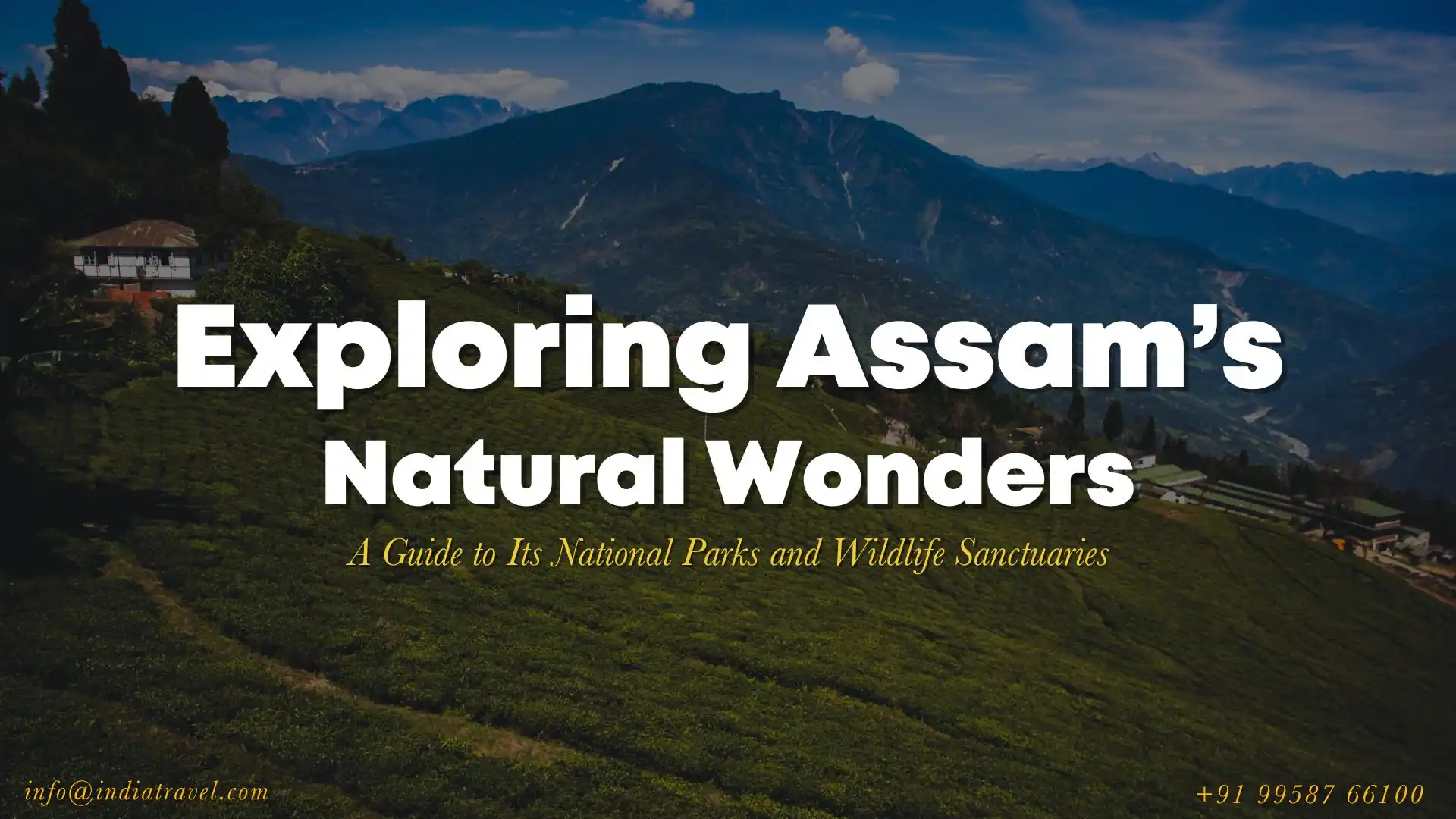 Assam is known for its unique topography, with the Brahmaputra river being called the "red river" and the hills that appear blue from a distance being called the "blue hills".
Assam is known for its unique topography, with the Brahmaputra river being called the "red river" and the hills that appear blue from a distance being called the "blue hills".Nestled in North East India, Assam is a treasure trove of natural beauty and diverse history, often hailed as one of the country's most bountiful and untouched regions. Known as the 'Land of Blue Hills and Red River', Assam boasts wild forests, mighty rivers, and vast tea plantations. Renowned as the home to the one-horned rhino at the UNESCO World Heritage-listed Kaziranga National Park, it stands as a top biodiversity hotspot globally. With the majestic Brahmaputra River, magnificent hills, and rich flora and fauna, Assam embodies every tourist's paradise, serving as the gateway to the enchanting and unexplored northeastern part of India.
The state's diverse topography also offers opportunities for adventure activities such as river rafting, trekking in the picturesque hills of Haflong, and exploring the lush forests of Manas National Park. For those interested in history and culture, Assam is dotted with ancient temples, archaeological sites, and historical monuments that reflect its rich past and cultural diversity. Assamese cuisine is another highlight, featuring an array of flavorful dishes infused with indigenous herbs and spices. From mouthwatering fish curries to aromatic rice dishes and delectable sweets, Assamese cuisine delights the taste buds of visitors.
Sharing international borders with Bangladesh and Bhutan, Assam exudes vibrant culture, scenic beauty, and historical significance. Enjoying a tropical climate, the state hosts evergreen vegetation year-round. Guwahati, its largest city, renowned as the city of temples, houses the revered Maa Kamakhya Devi Temple, a significant Hindu pilgrimage site. Majuli, the world's largest river island, epitomizes vibrant Assamese neo-Vaishnavite culture. Further north, Dibrugarh, known as the Tea City of India, sits by the Dibru River, boasting vast tea estates. Assam is known for Assam tea and Assam silk. The state was the first site for oil drilling in Asia. Assam is home to the one-horned Indian rhinoceros, along with the wild water buffalo, pygmy hog, tiger and various species of Asiatic birds, and provides one of the last wild habitats for the Asian elephant.
Hajo, an ancient pilgrimage center for three religions, stands as a testament to India's secular diversity, adorned with temples, mosques, churches, and sacred artifacts. Haflong, Assam's sole hill station, mesmerizes with rolling mountains and lush green valleys, offering a serene retreat amidst nature's splendor. With its blend of natural wonders, cultural richness, and historical significance, Assam invites travelers to embark on an unforgettable journey through its captivating landscapes and vibrant heritage. Besides the wildlife, it's the subtly flavoured cuisine and the exquisite heritage that cast a magical spell in the hearts of travellers, making Assam a must-visit tourist destination in India. The state is also referred to as the birthplace of Indian tea. Assam is famous for Tea plantation. It is also popular for muga silk, pat silk and eri silk which are not easily available in other places. Historical places like Sivasagar- Rang ghar, kareng ghar, tolatol ghor, namdang stone bridge and more.
Welcome to the land of mystical rivers and lush greens. Amidst the northeastern corner of India, Assam emerges as a mesmerising place known for nature's wonders and cultural splendours. This enchanting state, blessed by the meandering Brahmaputra River and cocooned by lush green landscapes, holds a unique allure.
So, come and explore the aroma of of Indian tea and retreat amidst nature's splendor. With its blend of natural wonders, cultural richness, and historical significance. Embark on an unforgettable journey through its captivating landscapes and vibrant heritage.
